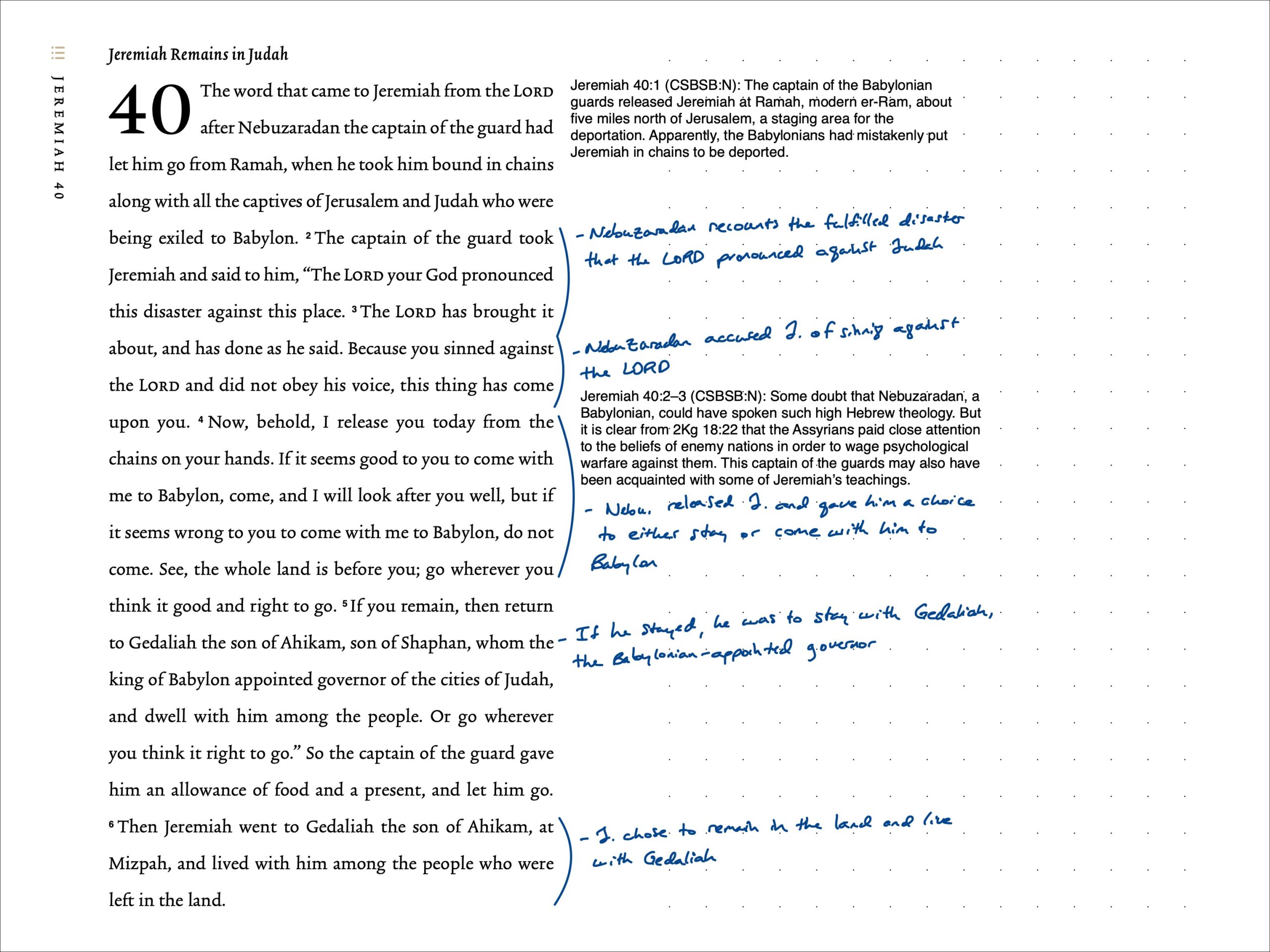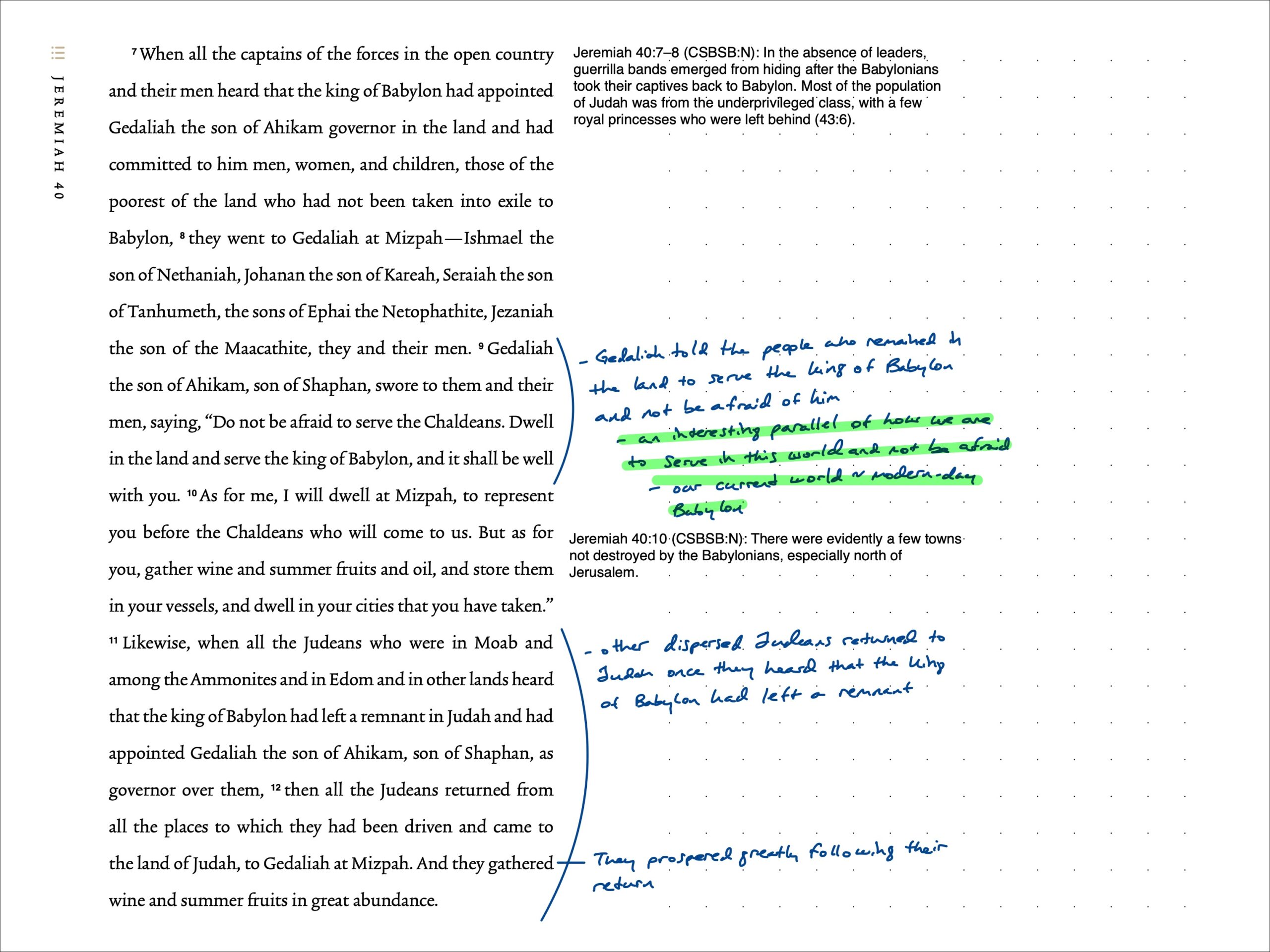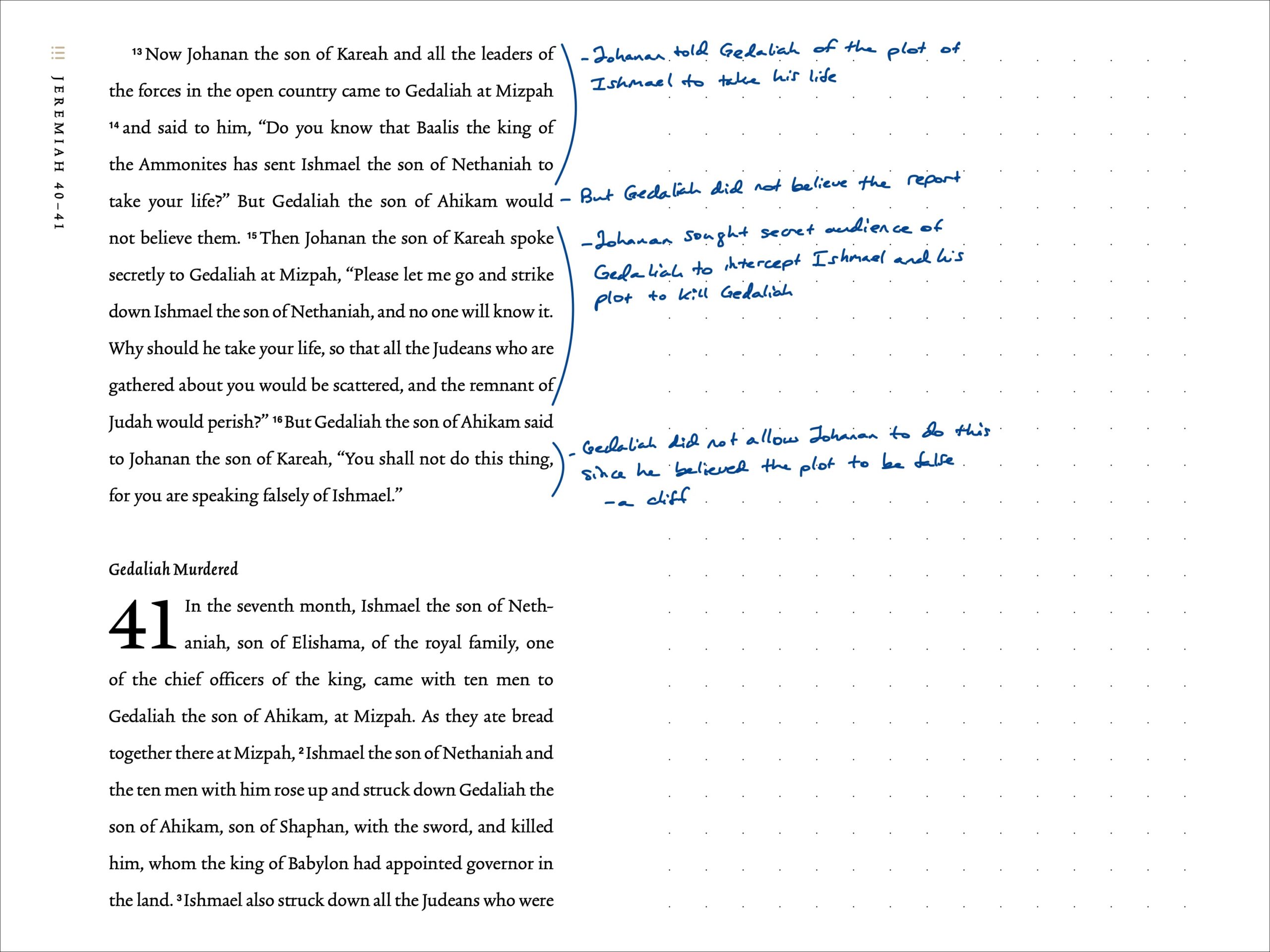| Date | Version | Reading Plan |
|---|---|---|
| @August 2, 2023 | ESV (2016) | ESV Prophets Plan 2023 |
Pericopes
- Jeremiah Remains in Judah
Notes
The chapter opens with a word that came to Jeremiah from the LORD after Nebuzaradan, the Babylonian captain of the guard, had let him go to Ramah, a staging place for deportation. Apparently, the Babylonians had mistakenly put Jeremiah in chains to be deported.
In Jer. 40:2-3, Nebuzaradan recounts the fulfilled disaster that the LORD had pronounced against Judah and even cites Jeremiah’s sin against the LORD as the cause (Jer. 40:3). It seems odd that a Babylonian would know so much about Hebrew theology, but 2 Kings 18:22 shows that the Assyrians paid close attention to the beliefs of enemy nations in order to wage psychological warfare against them.
In Jer. 40:4-6, Nebuzaradan gave Jeremiah a choice to either stay in Judah or come with him to Babylon. If he stayed, he was advised to stay with Gedaliah, the Babylonian-appointed governor of Judah (Jer. 40:5). Jeremiah chose to remain in the land and live with Gedaliah among the people left in the land (Jer. 40:6).
Jer. 40:7-12 describes how, upon hearing of the remnant left in Judah, guerrilla bands emerged from hiding and went to Gedaliah. Gedaliah told the people of the land to serve the king and not be afraid of him (Jer. 40:9). More dispersed Judeans also joined the return to Judah, venturing from Moab among the Ammonites and from other lands to which they had been driven (Jer. 40:11-12).
The remaining verses (Jer. 40:13-16) depict a report of Johanan and the open-country leaders that Ishmael, the son of Nethaniah, was plotting to take Gedaliah’s life. Gedaliah did not believe the report, so Johanan sought confidential audience with him to request permission to secretly strike down Ishmael, preserving his life and preventing the scattering of the Judaic remnant (Jer. 40:15). The chapter ends with Gedaliah’s denial of Johanan’s operation as he thought he was “speaking falsely of Ishmael.” (Jer. 40:16)
Application
Gedaliah’s telling the people who remained in the land to willingly serve the Babylonian king brought to mind a section of Christopher Watkins’ book, Biblical Critical Theory, where he describes the role of Christians living in this world. Through his method of “diagonalization”, he negates the false dichotomy of either fully assimilating within the culture or completely withdrawing from it into isolation. Instead, we are to be as servants, living “in” but not being “of”1 our current context. We have been placed in a modern-day Babylon at a specific time and for a specific purpose, to point others to Christ and of our eternal citizenship with Him in the kingdom of God.
Scripture Journal Notes
Commentaries & Resources Used
- ESV Study Bible. (Wheaton, IL: Crossway, 2008)
- Faithlife Study Bible (Lexham Press, 2016)
- Believer’s Bible Commentary (Thomas Nelson, 2016)
- CSB Study Bible Notes (Holman Bible Publishers, 2017)
- Matthew Henry’s Commentary on the Whole Bible (Guardian Press, 1976)
- The Bible: A Reader’s Guide (Sterling Publishing, 2011)
- The Infographic Bible (Zondervan, 2018)
- ESV Digital Scripture Journal (Crossway, 2019)
- Christopher Watkin, Biblical Critical Theory: How the Bible’s Unfolding Story Makes Sense of Modern Life and Culture (Zondervan Academic, 2022)


